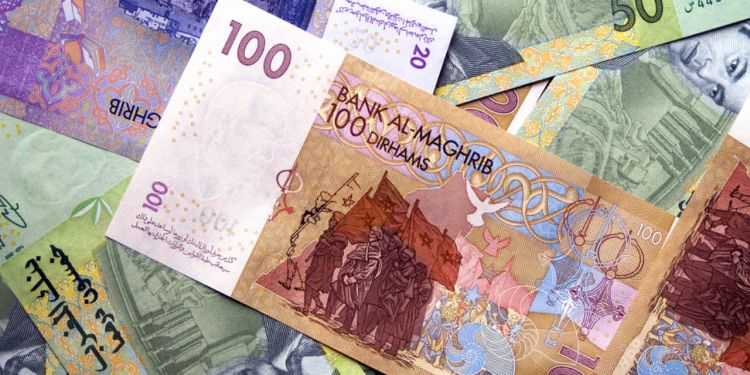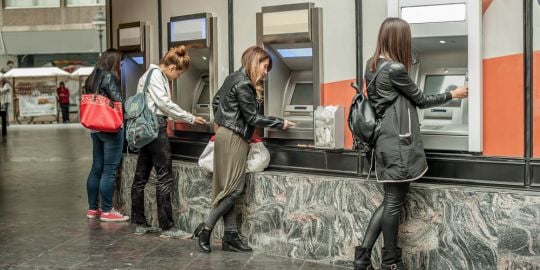The banking system in Morocco

Opening a bank account in Morocco is relatively easy. The language barrier could be an obstacle if you do not speak French, Arabic, or Darija fluently. Still, more and more bank employees are learning English, especially in bigger cities. It is best to arrive in Morocco with foreign currency in cash rather than with travellers' cheques, as most Moroccan banks will not accept them. When you enter the country, you can bring up to US$ 10,000 in cash per person, and can convert it to dirhams when you arrive at the airport.
Types of accounts in Morocco
Depending on your situation, you can open a checking account in convertible dirhams; i,e. You deposit money in foreign currency, and it's immediately converted so you may withdraw money in dirhams in Morocco or a foreign currency abroad. It also allows you to wire money in from your account back home, as long you provide proof of its origin -wire transfer would suffice- and declare it through local customs. You can also open an account in foreign currency. But to open an account in Dirhams, you must be resident.
Good to know:
Transferring funds from your account back home can be quite a hassle, and the most recommended way of doing is to bring your money in cash with you (up to 10,000 USD per person)
Opening an account in Morocco
When choosing your bank, make sure to select an agency nearest to your home. You cannot obtain account documents, or make changes in another branch, but you may make deposits and withdrawals from some. The process for Moroccan citizens is not the same as the one for residents, and it even differs from bank to bank.
You will usually need a piece of identity (notarized copy of your passport or residency card). You may also need a certificate proving domicile and proof of employment, and have to fill out a form. This can usually take a couple of hours to days, depending on the bank and the branch. The last step, you meet the branch manager, who presents your documents and contract (which you sign).
Once you open an account and deposit a minimum amount of money, you will get a credit card that can be used at ATMs and anywhere in Morocco (and sometimes a free chequebook as well). You can also have your employer wire your salary directly to your account, and you can pay your rent with your bank account as well as make payments online. Keep in mind that most stores and restaurants only take cash. Debit cards are not unheard of in Morocco, to acquire one you simply have to report to the branch and ask for that service; you will usually have to pay a fee.
When you choose your bank, you may have the option of asking for a convertible account. This will allow you to open an account in a foreign currency. Your foreign currency will be converted into dirhams on the same day. The only problem with the convertible account is that you can only make deposits in the currency in which you open your account. For example, if you open an account in euros, you can make deposits only in euros. If you are working in Morocco and you are being paid in dirhams, you need to open another account in dirhams.
Important:
Check the policies of the bank, as well as their interest rate and how they price some services and products.
Benefits of banking in Morocco
For expatriates, opening a bank in Morocco is the best course of action to handle your finances for a long stay. For one thing, it's never safe to carry all your cash with you, and you can easily pay bills through an ATM or online. You'll also save up a lot of money in currency change fees (and interests are also tax-free for non-residents), and if anything happens, you can always contact and have your finances in check.
Good to know:
When withdrawing money from your card, make sure to do it at ATMs in one of your bank's branches. A 6 % fee applies when withdrawing from a different bank's ATM.
Sending money from Morocco
Keeping an open account in your home country is highly recommended. Sending money to a foreign account can be very challenging, but there are several options. First, you can convert dirhams to another currency in the airport and bring cash with you when you leave the country. However, there is a limit to how much money you can bring. Second, you can send money to an account you had already opened in another country, but this requires you to have your residency documents completed, and can be difficult to work out with your bank. Ideally, your employer would provide this option, as it is easier for a company to make the transfer for you.
Useful link:









